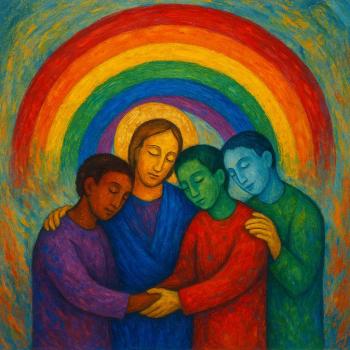What does it mean to be justified by faith? This is an important point in the beginning of Paul’s letter to the Romans. Paul opens this chapter by stating,
“Therefore, since we are justified by faith, we have peace with God through our Lord Jesus Christ, through whom we have obtained access to this grace in which we stand, and we boast in our hope of sharing the glory of God. And not only that, but we also boast in our afflictions, knowing that affliction produces endurance, and endurance produces character, and character produces hope, and hope does not put us to shame, because God’s love has been poured into our hearts through the Holy Spirit that has been given to us.”
Later in verse 15, he writes, “But the free gift is not like the trespass. For if the many died through the one man’s trespass, much more surely have the grace of God and the gift in the grace of the one man, Jesus Christ, abounded for the many.”
This post aims to examine these statements and their implications for contemporary perspectives on faith.
John Wesley, the founder of Methodism, placed the doctrine of justification by faith at the very heart of his theological system and personal experience. His understanding of this crucial doctrine was deeply shaped by the Protestant Reformation, particularly Luther’s emphasis on sola fide (faith alone), but also nuanced by his Anglican background and his strong emphasis on practical holiness (sanctification).
Spiritual Practice of Hope
If your relationship with God has eroded or even been broken and you feel like you are nothing in the eyes of God, fear not, according to Wesley’s notion of justifying grace, God’s justifying grace is “free in all to whom it is given. It does not depend on any power or merit in man; no, not in any degree, neither in whole, nor in part. It does not in anywise depend either on the good works or righteousness of the receiver; not on anything he has done, or anything he is.” In what appears to be an attempt to add emphasis Wesley explains, “Whatsoever good is in man, or is done by man, God is the author and doer of it. Thus is this grace free in all; that is, no way depending on any power or merit in man, but on God alone.”
Hope as a spiritual practice is a process of becoming and if you have lost your way, this practice of hope can counter feelings of despair. Unlike human relationships which can require a lot of hoops to jump through to make serious bids for repair, for Wesley, justification is primarily “pardon, forgiveness of sins.” It is the act of God the Father, who, for the sake of Christ’s atoning sacrifice, remits our past sins. Because the grace and love is already there (prevenient grace), all we have to do be present with God.
The Holy Spirit Moves Through All Creation
“It is the Spirit that sheds the love of God abroad in their hearts, and the love of all mankind, thereby purifying their hearts from the love of the world, from the lust of the flesh, the lust of the eye, and the pride of life. It is by Him they are delivered from anger and pride, from all vile and inordinate affections.”
— John Wesley
Wesleyans believe in the importance of the Holy Spirit. We view the Holy Spirit as a presence that influences prayers and motivates disciples into action. Sanctification is seen as part of salvation, where Christ leads to holiness, rather than holiness leading to Christ. Sanctification involves being perfected in love. John Wesley described it as the ongoing process of growing in the love of God and reducing the inclination to sin.
John Wesley also emphasized works of piety, highlighting the role of the Holy Spirit in fostering an awareness of God’s presence. For Wesley, Scripture is essential to sanctification, and spending time in the Word of God is not to make us smarter sinners but to make us more like the Savior. Sometimes when I read the scripture, I get nothing immediately, but later as I live with the words, inspiration comes. We need to cultivate patience that the Holy Spirit will be on time, whenever this time is. Bringing our awareness of the Holy Spirit deepens our spiritual walk. To be filled with the Holy Spirit is a command, a pattern of life; it is how we bloom into our eternal power as believers. Being filled with the Holy Spirit is continuous action, and refilling is necessary, especially after experiencing a mountaintop experience or any time when one feels an intimate closeness to God.
Closing thoughts
Faith is the assurance of things unseen. Hope is bread crumb that feeds this faith. Sometimes hope is a process of becoming. Trusting in the divine mystery means embracing faith as both a gift and a journey. It is not a passive state but an active engagement with grace, requiring us to lean into the transformative power of God’s love. This love, poured into our hearts through the Holy Spirit, calls us to move forward with courage, allowing endurance to shape our character and hope to illuminate our path. In this way, the intertwining of faith, hope, and love becomes not just a theological framework but a lived experience, weaving the sacred into the fabric of our everyday lives.












